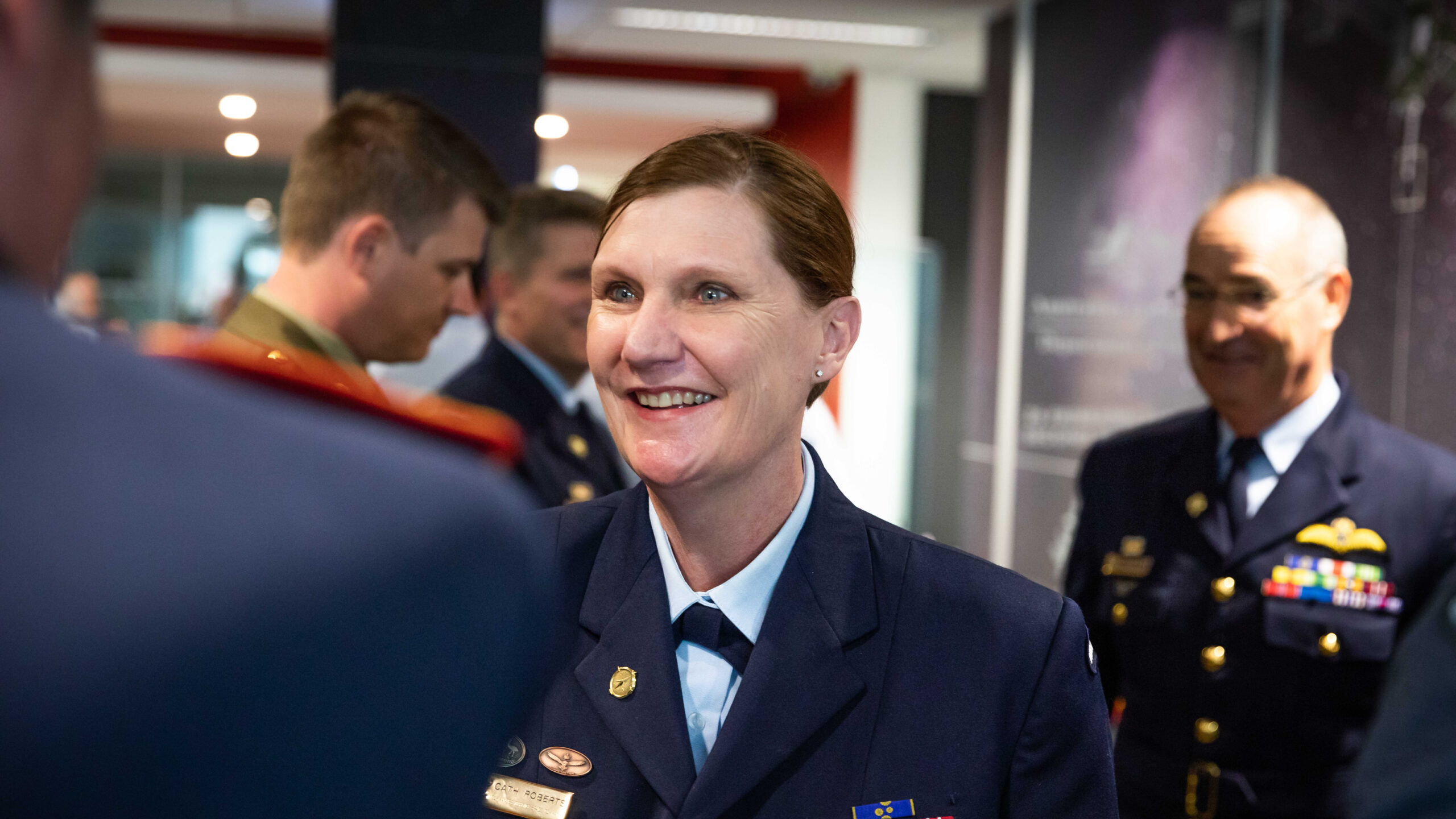COLIN CLARK

AVALON AIR SHOW — The head of Australia’s Defense Space Command says her country seeks technologies to deter countries that might try to laze, jam, bump or move Aussie satellites.
“We are working on making sure that we’ve got a level of capability so that we can deter attacks on our satellites, essentially through non-kinetic means so that we can have some impact,” Air Vice Marshall Cath Roberts, told a small group of reporters here, one year after her command was established. Electronic warfare is a key tool, she said.
“I think it’s a really important part of where we go to is just looking at how we can have that sort of electronic warfare-type of capability to allow us to deter attacks or certainly interfere,” she said. Asked when she would have EW capabilities to deter other nations, she said simply, “As soon as I can.”
“Space is a really strategic environment, but it’s also a very vulnerable environment. Depending on which orbit satellites are in, it makes a difference as to their vulnerabilities,” Roberts noted.
A very important part of Australia’s ability to deter is its ability to see what is happening in space with high fidelity. The clear atmosphere here, the lack of light pollution and Australia’s position on the globe all mean the country is a highly effective observation base for watching satellites.
One of the most interesting bureaucratic battles over time is sure to be between the Space Command and the Australian Space Agency, which controls policy and budgets for all launch in the country, and the Australia intelligence community, which controls the budget for its birds and ground stations.
Breaking Defense asked Roberts to clarify who has what authority — budget and acquisition — between what American space experts call black and white space.
“I am the technical authority for all space acquisitions,” she said. “We’re still working out exactly what that means. But what it does mean is that I am very aware of and get to see what the other the intelligence agencies are doing so I can see how it all fits within the architecture and I could certainly advise on it right.”
But she doesn’t “own” all space intelligence acquisition.
“It’s going to be really complicated as we go into the future, because it’s fine when they’re just an intelligence asset. But satellites are becoming more and more multi-mission,” she said. Bottom line for today: she is not responsible for the entire space budget and she doesn’t control launch.
Reporters pressed Roberts for details about Australia’s largest ever space contract, JP 9102. She pointed to recent changes in the budgeting and acquisition system to streamline those functions but said she wasn’t sure when the contract would be announced. The deal is “in the finalization of the tender evaluation,” she said, “and I would expect that there should be an announcement.”
No comments:
Post a Comment